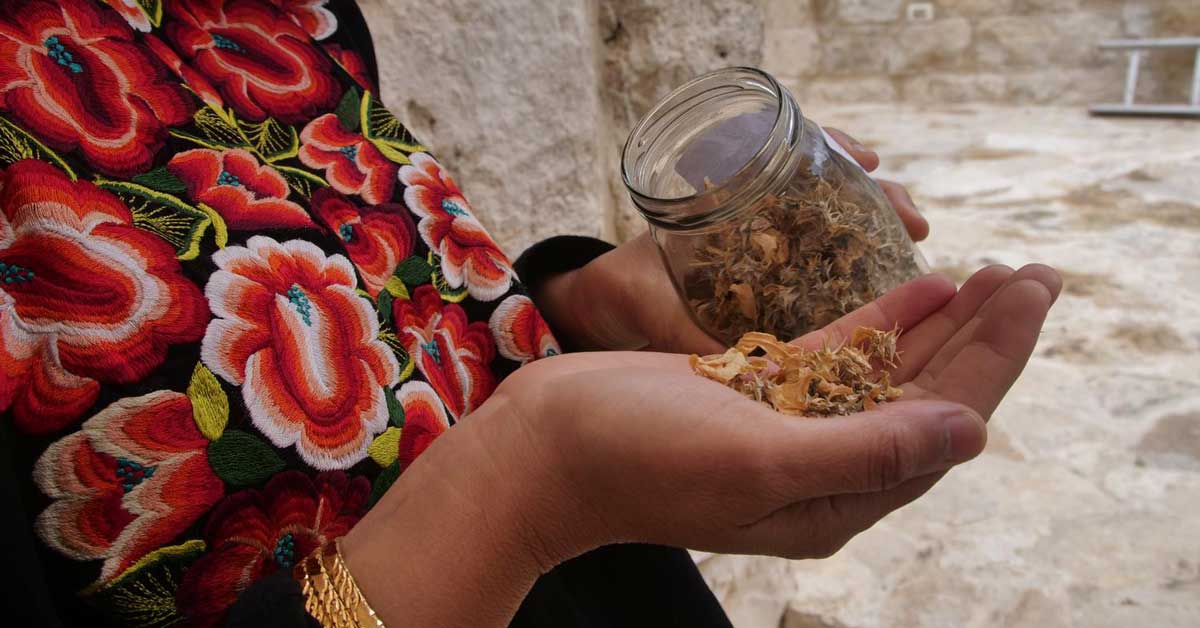This story is part of the SoJo Exchange from the Solutions Journalism Network, a nonprofit organization dedicated to rigorous reporting about responses to social problems. It was originally published by Next City.
The Tap In Center in St. Louis County is one example of legal help that supports underserved people with open warrants.
It has saved hundreds from going to jail, so why aren't more counties copying it?
Early this year, George Harris (not his real name) had two pending court cases in St. Louis County. He was unaware of one of those cases due to a common error: The notice was sent to an address he no longer resides at. He missed his court date and the county issued him a warrant for failing to appear.
An open warrant meant that if Harris had any encounter with the police, he would be arrested and incarcerated at the St. Louis County jail — all because of a wrong address and a missed court appearance.
But this February, Harris visited the Tap In Center, a resource designed to address this very problem. Inside a local library, he worked with a volunteer attorney who heard out his issue and relayed it to the county prosecutor, who ultimately recalled Harris’s warrant.
“They helped me stay in the community, stay with my family and take care of my kids,” Harris says of the service. “I could have been locked up on that warrant.”
The Tap In Center is an experimental service that launched at the Florissant Valley Branch of the St. Louis County Library in fall 2020. At the center, volunteer attorneys work with people who have open warrants with the goal of recalling them.
In 17 months, nearly 300 residents were served and more than 300 warrants were recalled. This April, a second Tap In Center opened at the Lewis and Clark Branch of the St. Louis County Library to increase the impact.
The Tap In Center is one result of years of community organizing with the goal of reducing racial disparities in St. Louis’ justice system and lowering the jail population. One major player has been The Bail Project, which in 2018 began providing free bail assistance and community-based pretrial support.

The Bail Project’s served over 3,000 people and got the jail population low enough to lead to the passage of a 2020 bill to close the city’s medium-security jail.
In this work, bail advocates realized that much of the jail overcrowding was caused by people incarcerated due to open warrants. This isn’t unique to St. Louis — around the country, the most common type of warrant is issued by the court when someone fails to appear for their court date.
The Bail Project’s work intersected with the St. Louis County Safety and Justice Challenge, which began in 2015 following the police murder of Michael Brown.
In response to the DOJ investigation into the Ferguson Police Department, which found that municipal court practices exacerbated racial inequities in the St. Louis County justice system, members of the Safety and Justice Challenge prioritized the courts in their larger goal of keeping people out of jail.
In 2020, the groups came together to focus on the bench warrants issued due to failing to appear at a scheduled court date. “We started talking about what amnesty, or warrant forgiveness, could look like and who would need to be involved,” says Miranda Gibson, a grant manager at the St. Louis County Department of Justice Services who now coordinates the Tap In Center.
“There’s a common misconception that if someone doesn’t show up to court, they are flagrantly evading prosecution, running from the court or committing crimes,” she continues. “Usually it’s very benign, or just a misunderstanding — anecdotally, most people just don’t know they have a court case or a court date.” Court notices are sent to the address listed on someone’s identification card, which is frequently outdated.
To assess feasibility, the groups started talking with public defenders and judges who participated in the Safety and Justice Challenge. “We wanted to do it where we’d have the most buy-in possible,” Gibson says.
The goal was to convince county prosecutors, who’d make the final decision to recall warrants. “The program could not live without the prosecutors,” notes Gibson. “Ultimately it helps their caseload, they don’t want people out in the world with a bunch of warrants either.”
As they pushed for buy-in, they discussed potential locations. “The Bail Project was really good in framing why we’re doing this and pushing that it should not be at a government building like a jail or courthouse,” Gibson says.
William Newsome, a client support specialist for the Bail Project who now helps with the Tap In Center, notes that police departments across the country advertise “warrant recalls” only to arrest the people who come seeking support. “The issue was that no one was going to believe that they could access this service and not get arrested,” Newsome says.
The group was drawn to the library, and after some cold emails, the St. Louis County Library leadership was quickly on board. “We were looking at where the warrants were coming from, where there was a high area of open warrants, and then talking with the libraries who know their communities well,” says Gibson.
They settled on the Florissant Valley Branch, which is accessible to public transit, about a 10-minute drive from Ferguson, and serves patrons who have been impacted by warrants, arrests and over-policing.
The Tap In Center opened there in September 2020. Every Tuesday, between 6 and 8 pm, volunteer attorneys and a representative from the Bail Project meet with clients who have open warrants.
“We’re right downstairs where the kid’s library is; it’s very relaxed,” says Newsome. “The entire staff of the Tap In is making you feel like this is a safe space; no one is calling the police.” He adds that the team even thought out what they’d wear: “We dress comfortably … if you walk in and see a bunch of people in ties, you’ll get leery.”
During the service hours of the Tap In Center, the county prosecutor’s office is on hand to take calls from the volunteer attorneys. The prosecutors have the authority to make decisions on recalling a warrant that same night.
“We’re looking at the history of the case, we call the prosecutor, and the prosecutor tells us if they’re able to dismiss the warrant,” says Taylor Burrows, a volunteer Tap In attorney. “If the prosecutor has concerns [about dismissal], we go from there to address those concerns.”
“The answer is not always ‘yes,’” Gibson points out, “But we have had a lot of success.” The client can usually leave the Tap In Center after 20 minutes and know if the warrant is going to be recalled, and if so, know they will have another court date set.

There are 91 municipalities in St. Louis County, all with their own courtroom policies and rules around warrant recalls. “It is byzantine,” Burrows says. Some of the volunteer attorneys put together an exhaustive list of court procedures for each municipality, with the goal of streamlining the process.
“We want to understand their policies for warrant recalls, policies for payment plans, where people should direct questions, and what steps they should be taking to deal with their warrants,” Burrows says.
As the attorney addresses the warrants, a Bail Project representative offers wraparound services. “We tap our clients into community partners who do everything they may or may not need,” says Newsome.
“It’s all voluntary, you can come to the center and have a substance abuse problem but if you don’t want to deal with it, we won’t force you.”
Crucially, the Bail Project helps clients attend their new court date by signing them up for automated reminders and offering transportation.
According to anonymous testimony provided by Tap In clients, recalled warrants have a profound impact on their lives.
“It kept me out of jail, which allowed me to continue to work, stay in treatment, and mainly stay out of the system,” one client said. “Once you’re in the system, it’s hard to get out. You get no treatment when you’re in jail, so you guys really saved me from that.”
Another client missed their court date due to confusion. One day after they visited the Tap In Center, the judge recalled the warrant and scheduled a new court date.
“I didn’t know what was going on with the case at the time,” the client reported. “There was a miscommunication because of COVID, I didn’t intentionally miss anything, and you guys made it so I didn’t get locked up.”
Visits to the Tap In Center increased as word got out through word of mouth, outreach from all the participating partners, and direct referrals from judges, prosecutors, and attorneys.
But the team noticed that many of the clients weren’t coming from a neighborhood with a significant percentage of open warrants. So in April, the Tap In Center expanded to the Lewis and Clark Branch to serve that population.
With volunteer support and a free space provided by the library, the team feels this is an easily replicable service — it’s just a matter of getting judges and prosecutors on board.
“Just the fact that our prosecutor is open to looking at these cases is huge … I know a lot of prosecutors are not willing to do that, which is why we haven’t expanded beyond St. Louis County,” Gibson says.
“This could work in every community,” says Newsome. “Anywhere there’s over-incarceration, this can help.”





